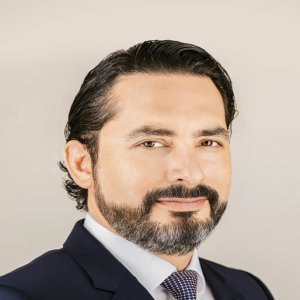Three Keys to an Attractive Mining Jurisdiction

STORY INLINE POST
Mexico could be an even more attractive destination for mining investors but a number of issues need to be resolved before the industry can fully start capitalizing on its appeal, says Adolfo Calatayud, Tax Controversy and Dispute Resolution Lead Partner in Mexico and Latin America at PwC. “Certainty comes first, natural resources come second and fiscal burden, third,” he says. “The mining industry still has huge potential to grow as a percentage of Mexico’s economy and if Mexico addresses these main factors, investors will come because the expected returns are attractive for international executives.”
Judicial certainty is perhaps the most pressing legal matter for the country’s mining sector, explains Calatayud. “There is a direct correlation between legal certainty and investment attraction,” he says. Accordingly, the global exploration budget was mostly devoted to Australia, the US and Canada. These three countries received 34 percent of total investment in 2018, according to PwC. “If Mexico wants to become more attractive to investors, clearly the first thing to address is certainty,” he adds.
Stability also is in play because mining is by nature a long-term activity. “The economic cycle in this industry is very long as any investment made today will yield returns in a 10 to 15-year time frame,” Calatayud says. “If there is no guarantee that regulation will remain the same looking forward, there will be no exploration investment.”
While the trade future between Mexico, Canada and the US no longer hangs in the balance, Calatayud indicates that the future commercial relationship in the North American bloc remains unclear. “The industry is still understanding the challenges derived from the treaty,” he says. “It is too early to give advice on the legal implications of USMCA as many aspects are yet to be defined, such as union transparency and other labor matters.” But he adds that, once the treaty is approved in Congress, secondary laws can begin to be revised and modified.
In terms of resources, any mining jurisdiction must ensure it can provide rich mineral offerings to investors and, in that respect, Calatayud is in no doubt that Mexico can compete as a global powerhouse. Given Mexico’s abundance of natural resources, the matter becomes one of fostering investors’ interest in exploiting them, meaning addressing fiscal burdens. Calatayud says that, in that regard, Mexico is falling behind. “By now, it is evident that Mexico has become more expensive than other mining jurisdictions,” he says.
For example, the US fiscal reform included a 100 percent deductibility of investment with no fixed assets, while in Mexico the long deductibility period for pre-operation exploration expenses is deterring investment. “Mexico is at a fiscal disadvantage for exploration compared to other jurisdictions.”
Calatayud believes that Mexico’s fiscal obligations must be modified, not only in terms of taxation rates or mining royalties but through a deep understanding of the nuances of the industry and following a strategic plan. “The tax structure must be designed to foster investment,” he says. “Mining is very capital intensive at its initial phase, so the fiscal structure must adhere to the industry’s economic cycle.”
He adds that the Income Tax Law in some of its aspects is flexible enough that it enables economic analyses to determine how much a company should pay considering the economic cycle and market conditions. But he says this legislation should go further. “I think that there is space for doing things differently to promote investment, having companies pay what is fair while understanding the industry’s circumstances.”
Tax concerns in Mexico are not limited to the quantity paid; how these funds are spent is also a key issue in mining and across other industries. “When speaking about taxes the conversation usually revolves around income but not about expenditure,” says Calatayud. The industry demands transparency on how much is paid and where it is spent. “In mining, it is particularly relevant if the tax outlay is aligned with community needs,” he adds.























